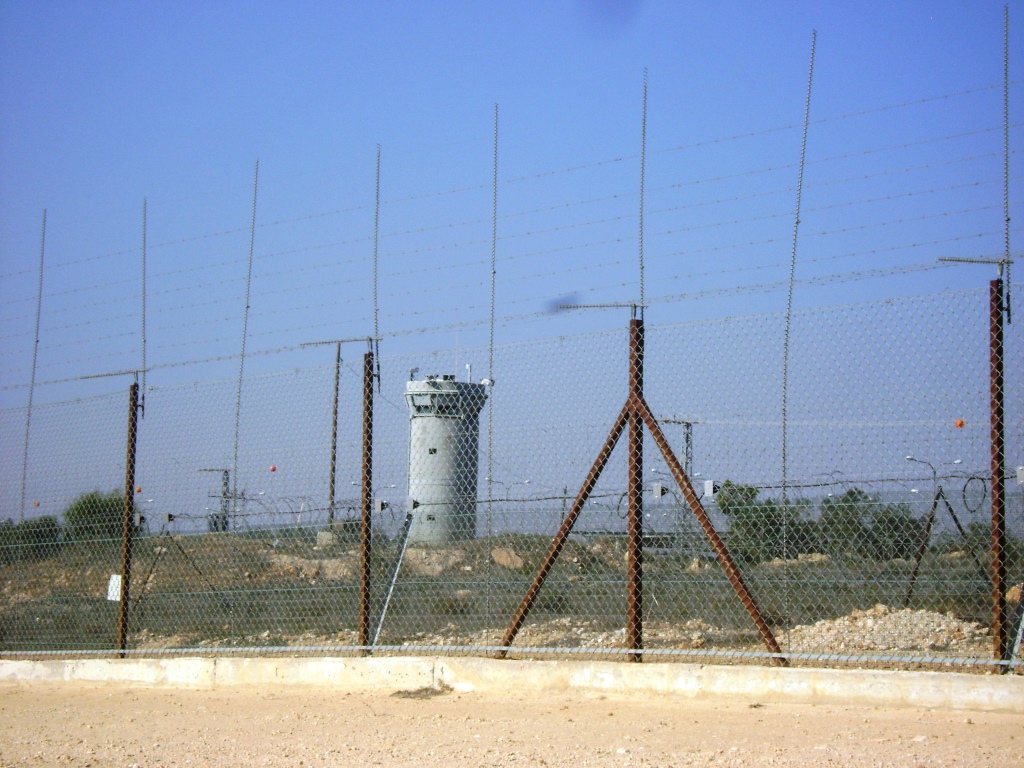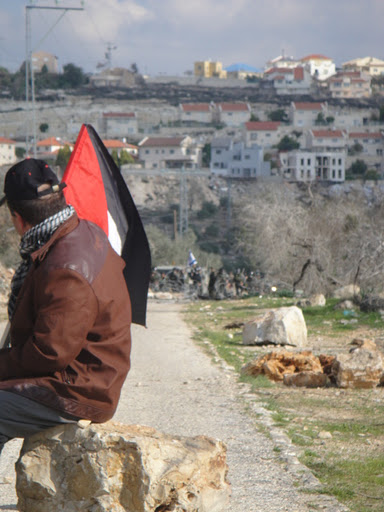Tag: Settlers
-
Al Jab’a: “If the judge is your enemy, who are you going to complain to”
by Sarah Morand 28 December 2011 | International Solidarity Movement, West Bank At first sight Al Jab’a appears as an idyllic Palestinian village, and sitting in a lovely garden under big olive trees, this seems like a perfect escape to the country side: white houses, friendly people, nice nature, and a splendid view until you…
-
In Photos: Settlement too close for comfort
by Amal 16 December 2011 | International Solidarity Movement, West Bank Kufr Qaddoum’s resistance is only getting stronger and is showing no signs of slowing down. The resilience of the Kufr Qaddoum residents is remarkable. Every week the Israeli Occupation Forces have increased their aggressive attacks, and yet the people still join together every Friday…


